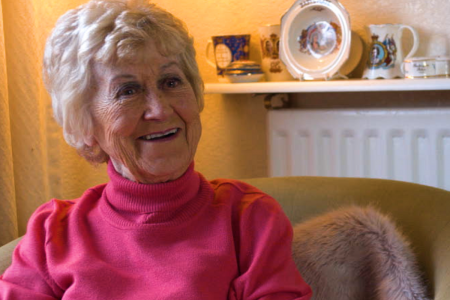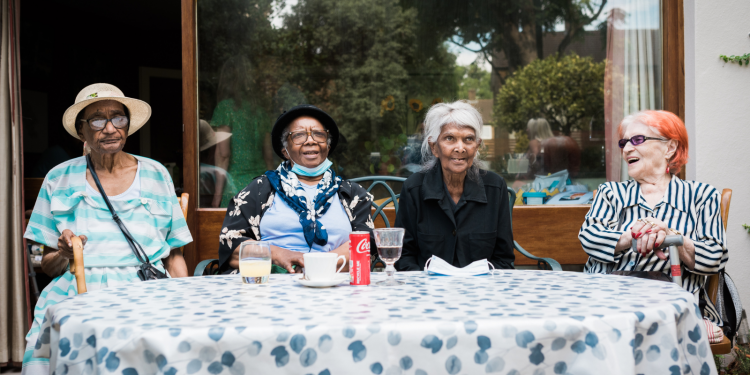“You feel like a faceless non-entity, it feels horrible.” (Advisory group member, Oct 2022)
Socially isolated older people over the age of 75 are amongst some of the most excluded in society. For many, social exclusion is only part of a wider experience of isolation. Of the 8,300 older people we support, 76% have long-term health conditions, 51% are not online, 76% are widowed and 95% live alone. These factors place people at a far greater risk not only of social exclusion, but also financial, digital, health and transport-related social exclusion. These multiple exclusions make it very hard for people to participate in society in the way they would like and compounds feelings of loneliness.
“They are excluding people who haven't got a lot of money, or transport, or a computer.” (Advisory group member, Oct 2022)
Living alone and only rarely leaving your home due to long-term conditions, fear, money or lack of transport, can make the internet a potential way to find that missing human connection. However, our 2021 research, found that approximately half (51%) of isolated over 75s were not online - significantly higher than the national average, and higher than the general population of over 75s. Getting online is both a practical consideration and a big psychological hurdle. Many older people lack confidence, are fearful of scams and few of the older people we heard from have the support they need to get and stay online. In an increasingly digital world, where even health information is moving online, many older people feel left behind.
“There are many people who do not have access to the internet. We are dismissed, ignored, excluded, since the pandemic, the situation has become worse.” (Research participant, 2021)
Older people, particularly those living alone on fixed low incomes, potentially face being disproportionately affected by the rising cost of living and energy bills. Digital exclusion compounds financial exclusion with a lot of information only available online. If you’re not online, it becomes harder to find out about the best financial products and protection, or ways to save money such as researching the best energy providers.
These multiple exclusions are not only detrimental for the individual, but society too is missing out on the wealth of experience, knowledge and joy older people have to share and contribute. As one of our advisory group told us in October 2022:
“Listen to the older people, the older generation. They've got a lot to say but they're not allowed to say it, because it's too past tense, it's not with it. When people die, you hear about how great they were and all the things they did, and we need to live and enjoy the past while people are still here. It's a shame they're going to be lost.”
Providing opportunities for social connection is a crucial step towards addressing not only social, but also digital and financial inclusion. Giving people the opportunity to speak in a warm, safe and caring environment, that is free and accessible, creates a space for sharing worries and experiences, building support networks and giving advice.
“It makes you feel part of society again. You were regarded as a has-been, nobody wants you; now you feel a person again, and that's lovely. And you enjoy hearing about people's lives and maybe helping them. It keeps you in touch with the present, and gives you hope for the future. It can be very inspiring.” (Advisory group member, Oct 2022).
In our commitment to reducing loneliness, we regularly consult with our advisory group of older people who access our services. Some of the views expressed here are from interviews with members in October 2022. We will continue to listen to people aged 75+ and explore the ways in which we can address the many facets of exclusion experienced by older people today and in the future.
-
View
More news

A week in the life of a tea party group coordinator
Volunteer coordinator, Neville, shares his experiences and tips to help tea parties run smoothly and cope with any potential spanners in the works.
By Re-engage

The Big Give Christmas Challenge
It's Big Give week, meaning your donation could be doubled. That will help us reach more older people like Jane - the star in our new Christmas film.
After her husband passed away, Jane had to learn to live alone. Through her local Re-engage tea party group, she found hope and friendship.
By Re-engage

